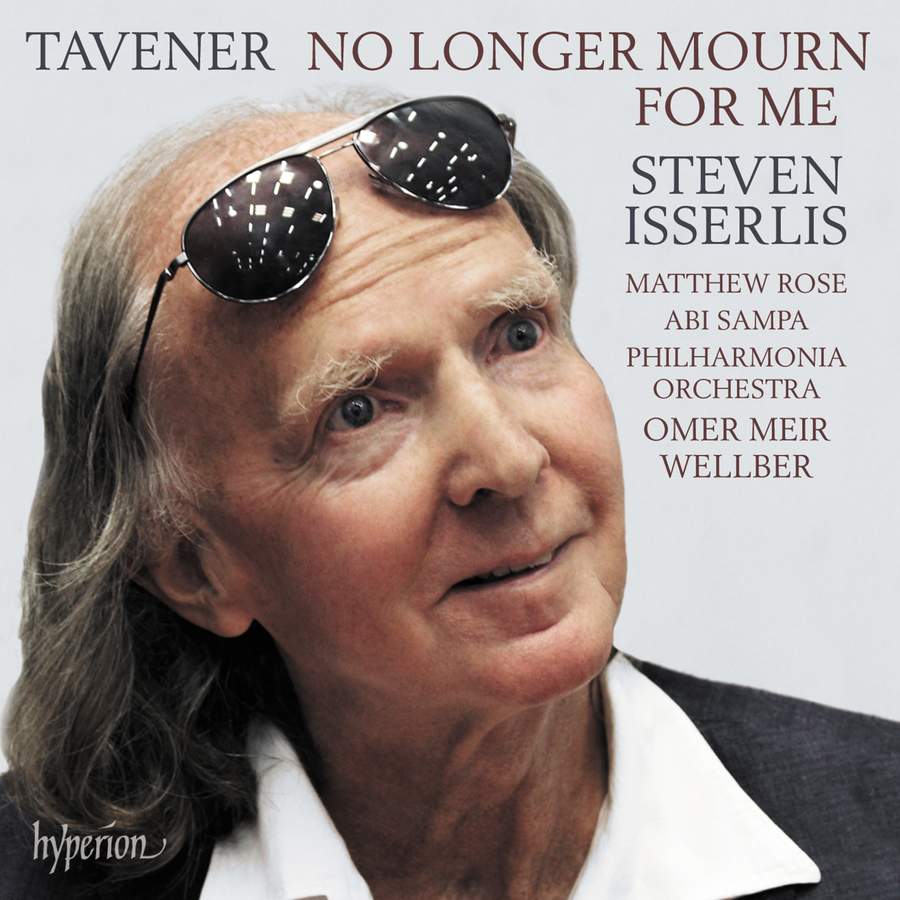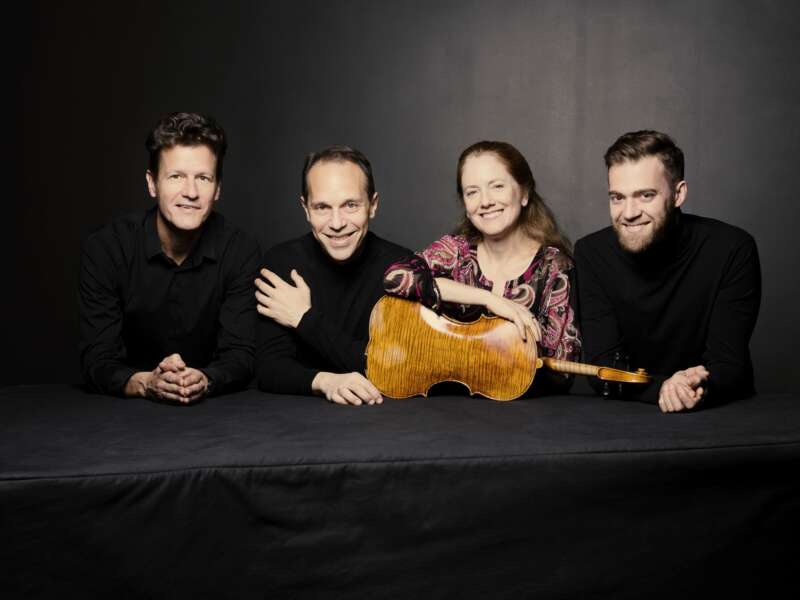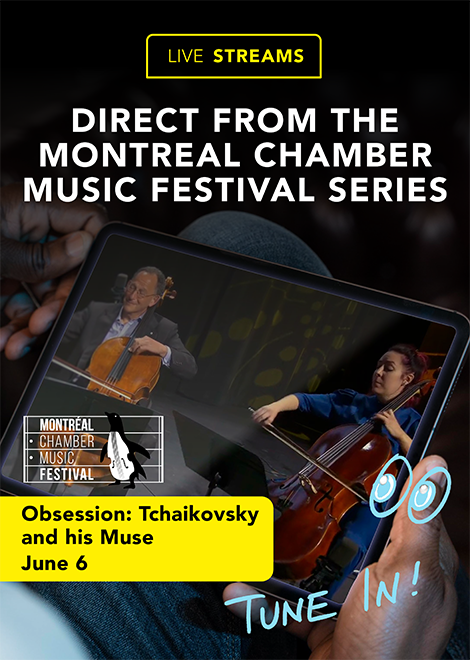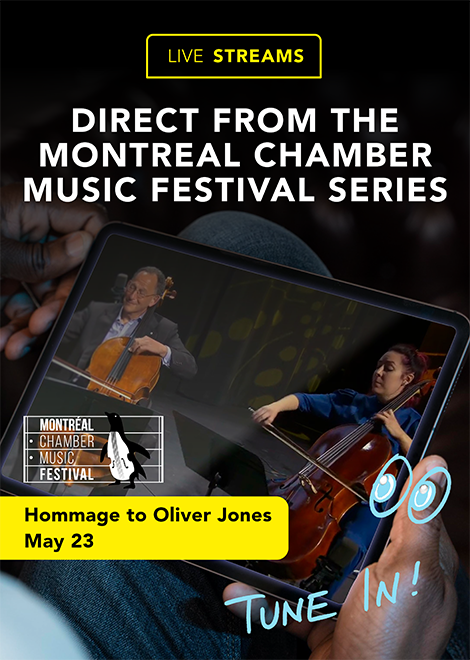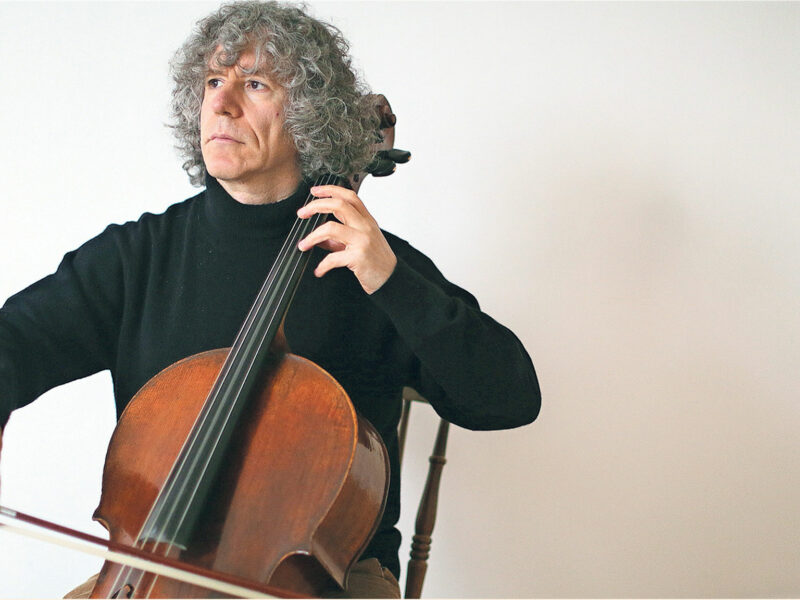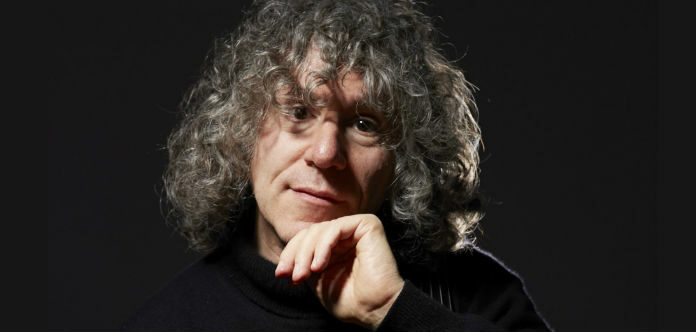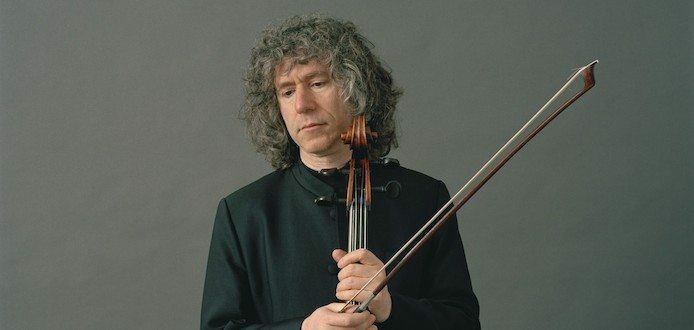VC INTERVIEW | Steven Isserlis Discusses John Tavener
Steven Isserlis' new album "No Longer Mourn for Me" features works by the late Sir John Tavener and is out now on Hyperion Records
The acclaimed British cellist recounts with the Violin Channel his friendship with British composer John Tavener (1944 - 1913).
Hi Steven! Can you tell us about John Tavener?
He was tall, about 6’6”. He was huge and imposing with his long, sort of golden hair. In 1977, he converted to the Russian Orthodox faith and then wrote all this wonderful music influenced by the chants and hymns of that church.
He had had a real burst of fame in his early 20s when he wrote the oratorio “The Whale”, which became very well known when the Beatles took it up and issued it on their Apple label.
Then, his music became a little more abstruse, and subsequently rather less popular. He made his comeback with “The Protecting Veil.” I premiered it at the 1989 BBC Proms and it became sort of a worldwide hit, I suppose.
His fame came and went until Princess Diana’s funeral, where one of his most beautiful choral works, “Song for Athene” was sung. And then again he was a huge sensation.
Unfortunately, afterward, he had a terrible, awful heart attack from which he almost died. In my sleeve-notes for the CD, I describe going to see him for the first time following that attack; it was shocking. He was never really healthy again - always in pain; but he recovered enough to go home and - amazingly - compose again, for a few years. Several pieces on the disc were written during that very last period.
How would you describe your relationship with him?
We were very close. We had our quarrels, but by the end, we were as close as ever, if not closer. After we had premiered two new works in Manchester in July 2013, I told him that I wanted to record a new album of his music. He was touchingly thrilled by the idea. However, it took 6 years to make it and seven years for it to come out.
Religion was obviously a big part of his life, converting to Russian Orthodox Christianity and later on showing a strong interest in Hinduism and Islam. How can you hear that in his life body of work?
You can hear the influence very clearly. The Russian Orthodox style brought us together in the first place, because we both loved this music. I thought that a work written in that style would sound really good on the cello.
The new album has many different religious undertones; the first work on the album, ''Preces And Responses'' was a choral piece actually written for the Anglican church. He was commissioned to write it; it turned out to be the last work he completed. We perform it in an arrangement I made for 8 cellos – a choir of cellos.
“The death of Ivan Ilyich” is the largest work on the album. It’s based on a novella by Tolstoi.
“Mahámátar” is Islamic-influenced, for sufi singer, cello, orchestra and boys’ choir.
The fourth piece on the album, ''Popule Meus - a Meditation'' has a Catholic title, but I’m not sure I’d describe it as a noticeably Catholic work – it’s just Tavener! And the album concludes with another 8-cello arrangement, from which the CD takes its name: ‘‘No Longer Mourn for Me’'. It is taken from the three Shakespeare settings premiered just a few days after John’s death.
So there’s quite a variety of styles and influences on this album!
Tell us about the new recording and what listeners can hope to hear in this. Are we almost seeing works over periods of his life?
The works are mostly from the period after his heart attack. “The death of Ivan Ilyich” was probably his largest completed piece he wrote in that period. It is almost like a Requiem for himself.
“Popule Meus” was actually written before his heart attack but it was the first piece that he and I worked on after he was able to leave hospital (where he spent a whole year). And so on – every piece has a personal story for him, and even for me, behind it.
You worked closely with John and a number of composers. How do you approach collaborations with living composers compared with Schuman for example?
It’s the same. The main difference is that with Schuman and Brahms, you can’t call them on the phone and ask them a question about their piece. Besides that, it’s pretty much the same.
I study the pieces in-depth as much as possible, and then if possible, play for the composer, and ask for comments. Some composers are much more demanding than others. John wasn’t really fussy about small details – and he was persuadable.
Sometimes it felt like I was telling him how I thought it should be played – and he usually agreed, which made life simpler.
It wasn’t like working with Kurtag for instance, or Heinz Holliger, with whom I just worked for the first time. They are so exacting! But that’s fine - I love it when composers demand a lot of you, in fact; it stretches your musical possibilities.
But with John, it was different: once he had written apiece, he sent it away and went on to the next thing. He always knew what he wanted in general terms, but he gave the interpreter a lot of freedom. Then he’d be happy, so long as they basically understood the music (which I hope I did).
I suppose it’s quite a dark album in a way, but it’s also rather appropriate for the time we are living through. And the music is redeemed, I think, by its incredible beauty – it’s just gorgeous music. I find it unbelievably touching.
In fact, if I had to choose one piece on the album, it would probably be the first piece, ‘‘Preces and Responses’’, which is, as I said, the last piece he ever completed. I am not sure he ever wrote anything more beautiful than that. The middle section, which in the choral version is ta setting of the Lord’s Prayer, is so tender, so melting. It actually brings tears to my eyes - which doesn’t happen that often, except when I am chopping an onion. It is very very special, especially when you know it is his last work. But you don’t have to know that in order to love it.
What would you like listeners to take away with them when they listen to the CD?
I suppose that, despite the darkness - and there is a lot of tragedy in this music - I want listeners to be uplifted and moved. It’s very powerful, but it’s never depressing. No matter how dark it gets, there is always redemption and always beauty. So I would love them to be, yes, uplifted and comforted by the music.
Final question. How would you like John to be remembered?
As a great character, a unique character. One who wrote works of great beauty. He wrote a lot, not all of it of equal quality, perhaps; but I think it would be fair to say that at its height, the music touches something truly sublime.
may 2024
june 2024


